Politics
/ArcaMax
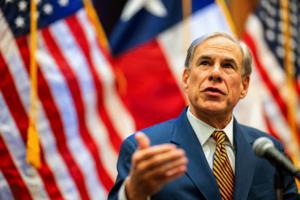
Ronald Brownstein: Red and blue states' fight is reaching a dangerous level
The cold war between red and blue states is escalating to a dangerous new level. Under the piledriver pressure of President Donald Trump’s bellicose second term, the red and blue blocs are moving from separation to confrontation.
The first stage in this unraveling has been divergence on state policy, particularly around social issues.
From ...Read more
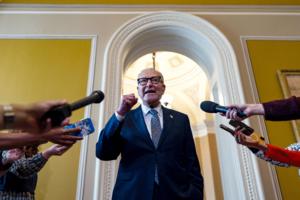
Jackie Calmes: Democrats should force a shutdown to save the government
Democrats have to change their ways. Ideally yesterday.
The Democratic Party is the pro-government party, simply speaking, and Republicans the antigovernment party. Democrats want to make the government work for people. Trump-era Republicans might as well wear knock-offs of Melania Trump's old "I really don't care. Do U?" jacket. For three ...Read more

Kaitlyn Buss: Secretary McMahon's education agenda puts parents first
DETROIT -- U.S. Education Secretary Linda McMahon’s most radical belief is that parents should get the say in how their kids learn.
That’s part of why she is seeking to return education to the states — to the fullest extent possible without an act of Congress that eliminates the Department of Education altogether — and encouraging them ...Read more
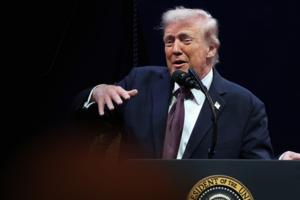
Commentary: The promise presidency -- How Trump rewrote the rules of political accountability
In the theater of American politics, promises are political capital. Most politicians make promises cautiously, knowing that if they fail to fulfill them, they will be held accountable
But President Donald Trump has rewritten the script. He repeatedly offers sweeping vows, yet the results often don't follow; somehow, he escapes the day of ...Read more
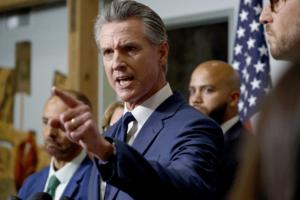
Commentary: California can be a leader by taking menopause policy seriously
Among the many audiences Gov. Gavin Newsom has provoked lately, one cohort is particularly fired up: menopausal women. I know I felt a rush of adrenaline (or perhaps it was a hot flash?) when I saw actor Halle Berry take to Instagram to demand the governor make menopause a public policy priority.
From Hollywood to Capitol Hill, menopause ...Read more

Mary McNamara: I thought rabies was a thing of the past -- until my dog had a run-in with a rabid bat
Since I became an adult, the list of things that I feel fairly confident will never happen to me has grown with each passing year: I will never win the lottery (I don’t buy tickets) or become a famous archaeologist (dreamed but never trained), but neither will I die while skydiving (no one can make me skydive) or have to worry about rabies.
...Read more

Commentary: One year after dams were torn down, an Indigenous writer sees a healing Klamath River
Over the last two years, I have traveled repeatedly to the Klamath River near the California-Oregon border to report on the dismantling of four dams. I saw crews in excavators as they clawed at the remnants of the Copco No. 1 and Iron Gate dams. And as the giant reservoirs were drained, I saw newly planted seeds taking root in soil that had been...Read more
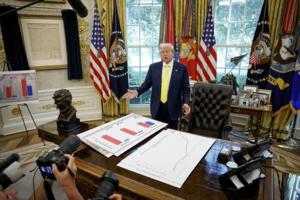
Editorial: Job market revisions shows BLS needs a shake-up
The Bureau of Labor Statistics appears to be auditioning for a new magic show on the Strip. Its showstopping trick is making nearly 1 million jobs disappear.
On Tuesday, the bureau announced its annual revision to yearly employment data. From April 2024 to March 2025, the economy added 911,000 fewer jobs than previously reported. That means the...Read more

Commentary: There's another way for blue states to respond to Trump. Go cold turkey on Washington
Universities, corporations, hospitals and other institutions across the country face a painful dilemma when President Donald Trump’s administration tries to force them to change long-standing practices and policies to suit the president.
Do they submit or embark on an extended court battle? The first option risks going down a road akin to ...Read more

Mark Gongloff: $1 trillion in American wages has gone up in wildfire smoke
The climate emergency has produced several on-the-nose metaphorical moments lately, such as an art museum founded by oil baron J. Paul Getty being threatened by the Palisades fire in Los Angeles in January or a superyacht’s fireworks sparking a wildfire in Greece last year. But nothing tops how more than $1 trillion in U.S. wages has gone up ...Read more
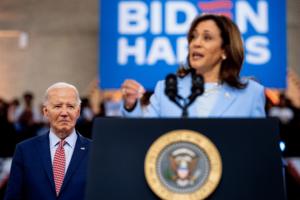
Mark Z. Barabak: 'I think it was recklessness': Harris criticizes Biden's late exit from 2024 campaign
When Kamala Harris left the White House, she was trailed by three big questions.
She's now answered two of them.
First off, the former vice president will not be running for California governor in 2026. After months of will-or-won't-she speculation, the Democrat took a pass on a race that was Harris' to lose because, plainly, her heart just ...Read more
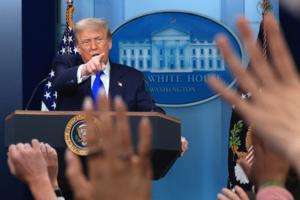
Commentary: MAGA Supreme Court justices show their true colors by joining Trump's attack on the federal judiciary
Writing in 1788, Alexander Hamilton famously described the judiciary as “the least dangerous branch” of the federal government. He thought that it would never be in a position to do serious damage to American life because it had neither “the sword nor the purse…but merely judgment.”
President Donald Trump and his allies seem to ...Read more
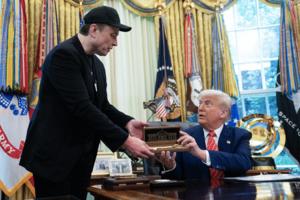
Michael Hiltzik: Trump won't last forever. Here's what it will take to rebuild what he's tearing down
The all-purpose adage offering optimism — and sometimes pessimism — to those confronting a crisis head-on is: "This too shall pass."
One gets the impression that this is a crutch favored by some major institutions that have capitulated to Donald Trump's demands — such as universities that have committed to fines and payouts stretching out...Read more

Steve Lopez: When I got COVID, readers said it proved vaccines don't work. What has RFK Jr. wrought?
I can't say I was surprised, but it didn't take long for readers to jump at the bait last week when I wrote that for the first time, I had tested positive for COVID-19 despite having been regularly vaccinated throughout the pandemic.
"Vaccines are poison," wrote one reader, who said I'd fallen for a hoax. "Wake up!"
Actually, as I said last ...Read more

Editorial: Charlie Kirk assassination -- Political violence has to stop
The killing of Charlie Kirk on Wednesday on a college campus in Utah is undoubtedly an act of political violence that should have no place in America.
The irony is that if the person who assassinated Kirk did so because of opposition to Kirk’s political ideology, the shooting only serves to make Kirk a martyr, to amplify his message and to ...Read more

Charlie Kirk's killing is horrific -- and likely not the end of political violence
Over the next few days, we are going to hear politicians, commentators and others remind us that political violence is never OK, and never the answer.
That is true.
There is no room in a healthy democracy, or a moral society, for killings based on vengeance or beliefs — political, religious, whatever.
But the sad reality is that our ...Read more
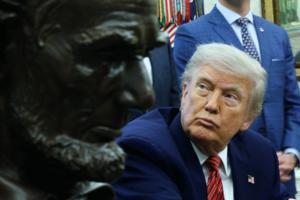
Commentary: Four ways we can bring manufacturing jobs back to the American Heartland
“Reindustrialize.” It’s the latest rallying cry gaining traction, with both the left and right calling for policy reforms to modernize American industry and finally bring back manufacturing jobs to the American heartland. But President Trump has been sounding this alarm for years, long before it became politically fashionable.
In line ...Read more
Editorial: Charlie Kirk assassination -- Political violence has to stop |
Opinion By The Editorial Board September 10, 2025 5:04 PM Turning Point CEO Charlie Kirk, seen here at the Turning Point USA's Young Latino Leadership Summit in Phoenix in 2021, was shot and killed Wednesday in Orem, Utah. Meg Potter/The Republic via USA USA TODAY NETWORK The killing of Charlie Kirk on Wednesday on a college campus in Utah is ...Read more

Commentary: Revive America's innovation economy before it's too late
For decades, the United States has been the world leader in innovation. Generations of business, political and educational leaders evolved a balanced system of public-private partnerships, deep science funding and support for small and emerging businesses. All Americans had a hand in creating a culture that celebrates a unique level of risk-...Read more
POINT: Trump's invasion of DC makes the case for statehood
President Donald Trump took over the D.C. police force and deployed the National Guard under the pretense of “rescuing the nation’s capital from crime.”
Of course, masked officers roaming the streets and intimidating and harassing residents haven’t made the city feel safer. A checkpoint was set up just a few blocks from my home, with �...Read more






















































